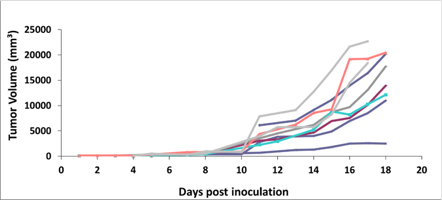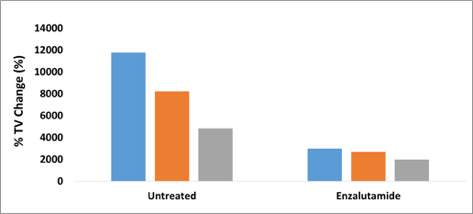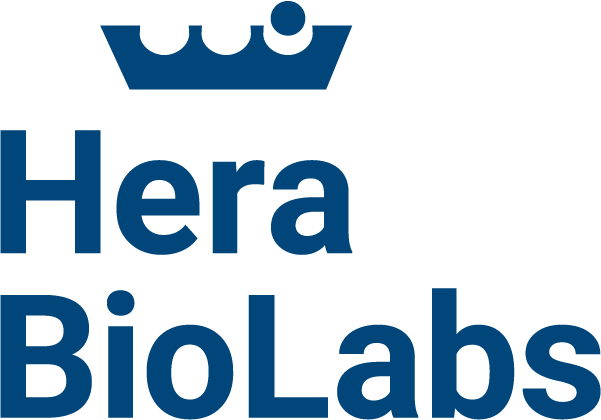SRG rats™ enable the VCaP prostate carcinoma xenograft model
VCaP is a prostate cancer cell line that exhibits many of the characteristics of clinical prostate carcinoma, including expression of PSA, PAP, and AR. VCaP cells also express retinoblastoma (Rb) and p53 (with a A248W mutation). The VCaP model is known to have poor engraftment rates and kinetics in immunodeficient mice (i.e. nude mice, SCID mice, NSG mice), making it challenging to generate a cohort of animals with similar tumor sizes for an efficacy study. High tumor take rates (> 70%) in SRG rats reduces the total animals required which, along with larger sample sizes, save time and money.
SRG rat VCaP products & services
VCaP Tumor Kinetics in SRG rats

VCaP cancer cells have dismal engraftment rates and kinetics in immunodeficient mice, but thrived in the SRG rat. The cells were inoculated in the flank region at a density of 10e6 cells per rat in a 1:1 solution of cell culture media and 5mg/ml Cultrex. Engraftment rate was 75%. Each line represents growth in a single animal.
Drug efficacy in VCaP in SRG rats

VCaP tumor efficacy. The antitumor effect of Enzalutamide against the VCaP tumor was assessed. SRG rats received 30mg/kg of enzalutamide orally once daily. The plot shows reduced percent change in tumor growth rate after 10 days on the drug.
